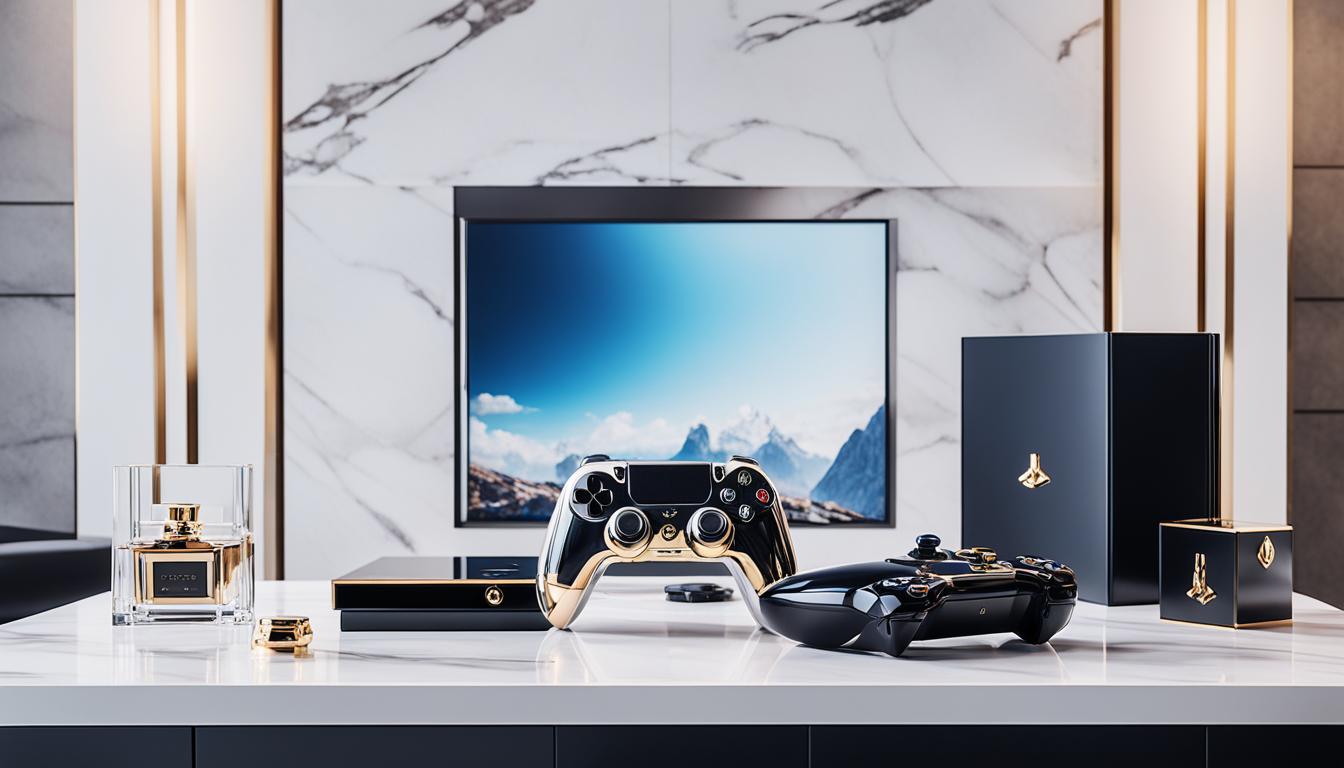I have always been fascinated by the convergence of technology and luxury, and one industry that has seen a significant impact from this intersection is the gaming industry. In recent years, social media has emerged as a powerful force in shaping the luxury gaming industry, transforming the way luxury brands engage with gamers. Platforms like Instagram, Facebook, and Twitter have provided an avenue for luxury brands to reach a wider audience of gamers and create a sense of community.
Influencer marketing has become a key strategy for luxury brands looking to leverage social media in the gaming space. By partnering with popular gaming influencers, luxury brands can tap into their established communities and build brand awareness among gamers. These influencers have an intimate understanding of their followers’ interests and preferences, making them valuable assets in promoting luxury brand products within the gaming community.
Another aspect of social media’s influence on the luxury gaming industry is the ability for brands to showcase their collaborations with video games. These collaborations generate excitement among gamers and create a buzz around luxury brand products. The digital nature of social media aligns seamlessly with the virtual world of gaming, making it an ideal platform for luxury brands to engage with gamers and drive sales.
As the luxury gaming industry continues to evolve, social media will undoubtedly play a pivotal role in shaping its trajectory. Luxury brands that effectively harness the power of social media and develop innovative digital marketing strategies will be poised for success in this dynamic and ever-expanding market.
Key Takeaways:
- Social media has become a powerful force in shaping the luxury gaming industry.
- Influencer marketing is a key strategy for luxury brands in the gaming space.
- Social media allows for showcasing collaborations with video games, creating buzz and excitement among gamers.
- The digital nature of social media aligns well with the virtual world of gaming, making it an ideal platform for luxury brands to engage with gamers.
- Effective use of social media and innovative digital marketing strategies are essential for success in the luxury gaming industry.
The Symbiotic Relationship Between Luxury Brands and the Gaming Industry
Luxury brands and the gaming industry have forged a powerful partnership, resulting in an increasing number of collaborations and marketing partnerships. This symbiotic relationship has created exciting opportunities for luxury brands to integrate high fashion into the pixelated worlds of video games, blurring the lines between reality and virtual experiences.
By allowing gamers to dress their avatars in designer clothing and accessories, luxury brands are not only enhancing the gaming experience but also showcasing their products to a wide audience within the gaming community. This integration of luxury fashion into the gaming world creates a unique avenue for brands to engage with gamers and generate brand awareness.
Furthermore, the psychology of digital ownership plays a significant role in this symbiotic relationship. Gamers invest in non-tangible digital items within the game, which hold value and status in the virtual world. This emotional attachment to virtual assets presents an opportunity for luxury brands to create exclusive, limited-edition digital items that hold prestige and desirability among gamers.
Integrating High Fashion with Pixelated Worlds
Luxury brands have recognized the potential of collaborating with the gaming industry to integrate their high fashion products into pixelated worlds. By partnering with video game developers, luxury brands can create virtual collections, allowing gamers to dress their in-game characters in the latest designer clothing, accessories, and even virtual luxury homes. This integration combines the virtual and real worlds, providing a unique and immersive experience for gamers while expanding the reach of luxury brands.
The Psychology of Digital Ownership
The psychology behind digital ownership is a driving force behind the success of luxury brand collaborations in the gaming industry. Gamers invest time, money, and emotion into their virtual experiences, forming attachments to digital items that hold value and status. By offering exclusive virtual items, luxury brands can tap into this psychology of ownership, creating a sense of exclusivity and desirability that translates from the virtual to the real world.
Case Studies: Louis Vuitton and ‘League of Legends’
A notable case study that exemplifies the successful collaboration between luxury brands and the gaming industry is the partnership between Louis Vuitton and the popular video game ‘League of Legends’. In this collaboration, Louis Vuitton designed a limited-edition collection of in-game character skins and a custom-designed Trophy Travel Case for the game’s World Championship.
This collaboration not only showcased Louis Vuitton’s craftsmanship and design expertise within the vibrant world of ‘League of Legends’ but also generated immense excitement among gamers and luxury enthusiasts alike. The partnership successfully bridged the gap between high fashion and gaming, proving the potential for brand collaborations to create synergistic experiences and drive engagement in the gaming community.
Gaming Industry Trends and Their Appeal to Luxury Consumers
The gaming industry is constantly evolving, and luxury brands must stay up-to-date with the latest trends to effectively appeal to gamers. Understanding popular video game genres and emerging technologies allows luxury brands to align their marketing strategies with the interests and preferences of gamers. By capitalizing on these trends, luxury brands can engage with a wider audience of gamers and establish themselves as leaders in the industry.
One of the significant gaming industry trends is the increasing popularity of virtual reality (VR) and augmented reality (AR). VR and AR technologies provide immersive gaming experiences that appeal to luxury consumers looking for a heightened sense of realism. Brands can leverage this trend by creating VR or AR experiences that showcase their products in a virtual environment, allowing gamers to interact with luxury goods in a unique and engaging way.
Another trend in the gaming industry is the rise of mobile gaming. With the increasing accessibility of smartphones and tablets, mobile games have become a popular choice for gamers of all ages. Luxury brands can tap into this trend by developing mobile games or partnering with existing mobile games to incorporate their brand and products. By reaching gamers on their mobile devices, luxury brands can extend their reach and attract a broader audience.
Emerging technologies, such as artificial intelligence and cloud gaming, are also shaping the future of the gaming industry. AI-powered games offer personalized and adaptive gameplay experiences, while cloud gaming allows gamers to stream games directly to their devices without requiring high-end hardware. Luxury brands can explore collaborations with game developers to integrate their products or create exclusive in-game content that enhances the overall gaming experience.
Overall, understanding gaming industry trends is essential for luxury brands to connect with gamers and create meaningful interactions. By embracing popular video game genres and emerging technologies, luxury brands can position themselves as innovative and relevant within the gaming community.
Marketing Strategies for Luxury Goods in the Digital Gaming Space
In order to effectively promote luxury goods in the digital gaming space, luxury brands can implement a variety of marketing strategies that cater to the interests and preferences of gamers. These strategies include:
Creating Exclusive Digital Content
One effective strategy is to create exclusive digital content that is only available within the gaming environment. This can include limited-edition virtual items, in-game experiences, or special features that are tied to luxury brand collaborations. By offering unique and exclusive content, luxury brands can generate excitement among gamers and drive consumer engagement. This strategy takes advantage of gamers’ desire for personalized and exclusive experiences within the virtual world.
Collaborating with Game Developers for In-Game Placement
Another effective marketing strategy is to collaborate with game developers to integrate luxury brand products and placements within the game environment. This can involve featuring luxury goods as in-game items that gamers can acquire and use, or placing virtual advertisements within the game world. The goal is to seamlessly integrate luxury brands into the gaming experience, allowing gamers to interact with and experience the brand in a natural and immersive way.
Aligning Campaigns with Gaming Events and Releases
Aligning marketing campaigns with gaming events and new game releases can be a powerful way to reach gamers and generate interest in luxury goods. By capitalizing on the heightened excitement and buzz surrounding these occasions, luxury brands can increase brand visibility and consumer interest. This can be done through targeted advertising, social media promotions, or even hosting virtual events that coincide with the game launch or event. By aligning campaigns with gaming events, luxury brands can tap into the existing enthusiasm and passion of the gaming community.
By implementing these marketing strategies, luxury brands can effectively promote their goods in the digital gaming space and connect with the growing audience of gamers. These strategies leverage the unique characteristics and opportunities that the gaming industry offers, creating meaningful and engaging experiences for gamers while driving brand awareness and sales.
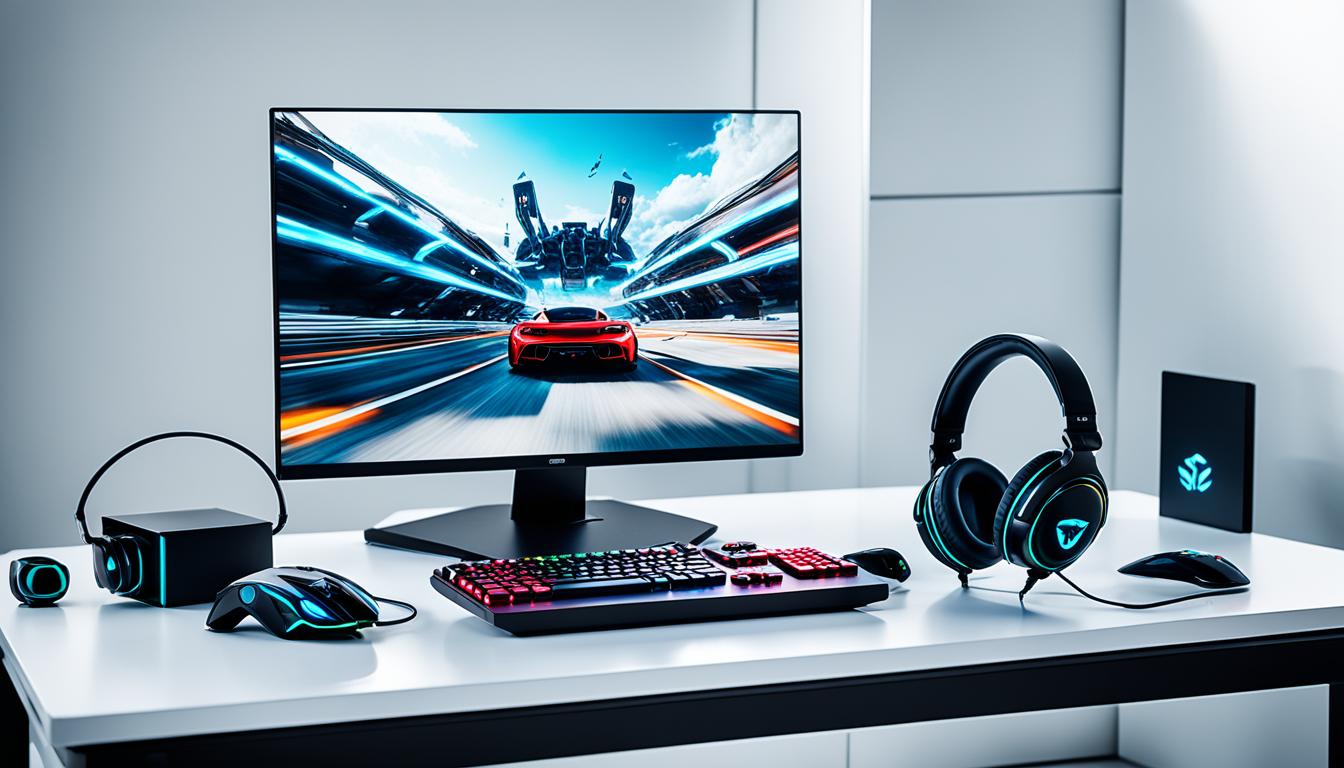
Emerging Technologies in Gaming and their Impact on Luxury Branding
The gaming industry is constantly evolving, and emerging technologies are playing a significant role in shaping its future. These technologies, including virtual reality, augmented reality, blockchain, and non-fungible tokens (NFTs), have also made a profound impact on luxury branding within the gaming space.
Virtual reality and augmented reality have revolutionized the gaming experience by providing immersive and interactive environments. Luxury brands are leveraging these technologies to create virtual showrooms and virtual fashion experiences. Gamers can now explore virtual spaces and try on virtual luxury products, allowing brands to showcase their offerings in a unique and engaging way.
Incorporating blockchain and NFTs into the gaming industry has also introduced exciting opportunities for luxury brands. Blockchain technology provides a transparent and secure platform for verifying and authenticating digital assets within games. Luxury brands can utilize blockchain to establish the authenticity and provenance of virtual goods, enhancing the perceived value and desirability of their products.
NFTs, on the other hand, enable the ownership and monetization of unique digital assets. Luxury brands can create limited-edition virtual items or collaborations with game developers, allowing gamers to acquire exclusive digital assets that hold value both within the game and in the real world. This opens up new avenues for luxury brands to engage with gamers and create valuable connections.
By embracing these emerging technologies, luxury brands can enhance consumer engagement, create memorable experiences, and differentiate themselves in the competitive gaming industry. Virtual reality, augmented reality, blockchain, and NFTs offer unique ways for luxury brands to connect with gamers on a deeper level and establish their presence in the digital gaming space.
How Virtual Goods are Redefining Consumer Spending Habits
Virtual goods have revolutionized consumer spending habits within the gaming industry. Gamers are now investing real money in digital assets that hold significant value and appeal. Understanding the psychology behind these purchases is crucial for luxury brands looking to tap into this growing market.
The Psychology Behind Purchasing Digital Assets
Gamers derive a sense of satisfaction and intrinsic motivation from acquiring virtual goods. The perceived value and exclusivity of these digital assets contribute to their desirability. By owning unique and highly sought-after virtual items, gamers are able to express their individuality and enhance their gaming experience.
From Virtual Outfits to Real-World Status Symbols
Virtual outfits and accessories have become more than just in-game items; they have become status symbols within the gaming community. Gamers use these virtual goods to showcase their identities and distinguish themselves from others. The popularity of streaming platforms and social media has amplified the visibility of these virtual outfits, further increasing their significance both within the game and in the real world.
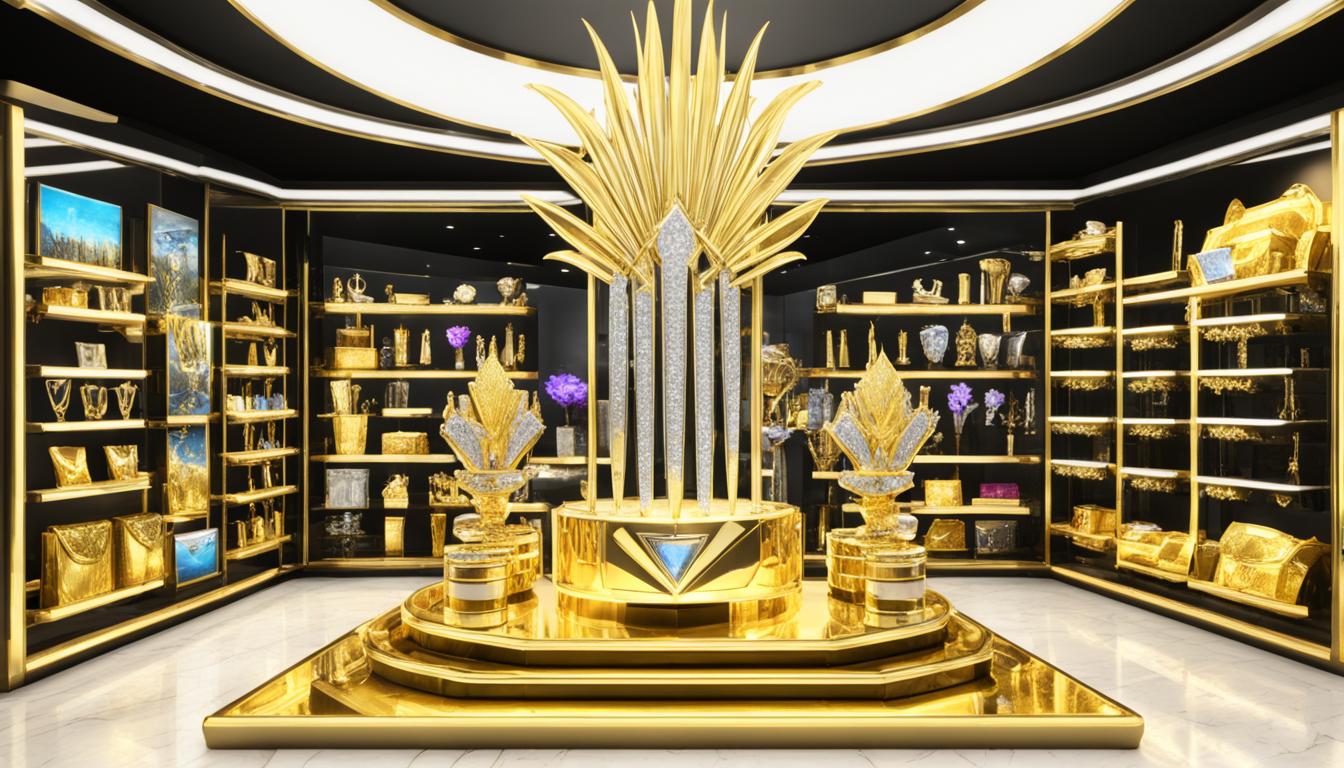
| Key Aspects of Virtual Goods | Impact on Consumer Spending |
|---|---|
| Exclusivity | Virtual goods that are limited edition or rare can command high prices and drive consumer demand. |
| Personalization | Gamers are willing to spend on virtual items that allow them to customize their avatars and express their unique style. |
| Symbolic Value | Virtual outfits and accessories often hold symbolic value within the gaming community, leading to increased spending to obtain these items. |
| Prestige | Owning virtual goods from renowned luxury brands can provide a sense of prestige and status among gamers. |
By offering exclusive virtual goods, luxury brands can tap into this trend, attracting gamers who are willing to spend on items that hold value and status both within the game and in the real world.
The Influence of Gaming Influencers on Luxury Brand Promotion
Gaming influencers have become powerful figures within the gaming community, commanding a significant influence and reach. For luxury brands, collaborating with these gaming influencers can be highly beneficial in promoting their products and reaching a wider audience. Through influencer marketing and strategic social media collaborations, luxury brands can leverage the expertise of gaming influencers to build brand awareness and drive engagement.
Gaming influencers possess a deep understanding of their followers and have cultivated strong relationships with their audience. This makes them highly effective in conveying the value and appeal of luxury brand products to gamers. Their authentic and relatable content resonates with their followers, making them a valuable asset for luxury brand promotion.
Social media collaborations play a crucial role in amplifying the impact of gaming influencers. By partnering with these influencers for sponsored content, luxury brands can tap into their established fan base and gain exposure to a wider audience. The engaging and interactive nature of social media platforms allows luxury brands to showcase their products in a creative and immersive way, capturing the attention and interest of gamers.
Influencer marketing in the gaming industry presents an excellent opportunity for luxury brands to engage with their target audience. By collaborating with gaming influencers, luxury brands can tap into the trust and credibility these influencers have built with their followers. This creates a seamless integration of luxury brand promotion within the gaming community, enabling brands to establish a strong presence and drive consumer interest.
Overall, gaming influencers play a vital role in luxury brand promotion, offering a unique channel to reach and engage with gamers. Through influencer marketing strategies and social media collaborations, luxury brands can leverage the influence and expertise of gaming influencers to create impactful and effective promotional campaigns.
Engaging Generation Z Through Gaming Platforms
Generation Z, also known as digital natives, represents a significant portion of luxury consumers. Engaging with this demographic through gaming platforms is crucial for luxury brands. Understanding the consumption patterns and preferences of digital natives can help luxury brands tailor their marketing strategies and create targeted campaigns. Gaming platforms provide a pathway to reach younger luxury buyers and establish long-term brand loyalty.
Understanding the Digital Natives’ Consumption Patterns
Generation Z, born between the mid-1990s and early 2010s, has grown up in a digital world, making them highly tech-savvy and accustomed to interacting with brands through various digital channels. When it comes to luxury consumer behavior, digital natives have distinct preferences and consumption patterns. They value experiences over material possessions and seek authenticity and personalization in their interactions with brands.
Gaming platforms offer a unique opportunity for luxury brands to connect with Generation Z on their terms. By understanding their consumption patterns, brands can tailor their marketing strategies to align with the values and interests of digital natives. This includes creating immersive and interactive experiences within the gaming environment that resonate with their desire for authenticity and personalization.
Moreover, digital natives are more likely to engage with brands that demonstrate social and environmental responsibility. Luxury brands that prioritize sustainability and social causes can appeal to Generation Z’s values and increase their brand affinity.
Gaming: A Pathway to Younger Luxury Buyers
Gaming has become a cultural phenomenon, transcending age and demographic barriers. It has become a popular activity among young consumers, including Generation Z. By leveraging gaming platforms, luxury brands can tap into the passion and engagement that gamers have for their favorite games.
Gaming platforms provide a unique opportunity for luxury brands to reach and engage with younger luxury buyers. By integrating their products and experiences within popular games, luxury brands can catalyze their presence and connect with gamers on a deeper level. This can be done through in-game collaborations, exclusive virtual items, or even real-world luxury experiences that tie into the gaming narrative.
Moreover, gaming communities foster a sense of belonging and camaraderie, providing luxury brands with a platform to build brand communities and establish long-term relationships with younger luxury buyers. By creating content and experiences that gamers can share with their peers and participate in, luxury brands can generate organic word-of-mouth marketing and increase brand loyalty among digital natives.
Overall, engaging Generation Z through gaming platforms is a strategic approach for luxury brands to tap into the preferences and behaviors of the digital natives. By understanding their consumption patterns and using gaming as a pathway to reach younger luxury buyers, brands can build lasting connections and foster brand loyalty among this influential demographic.
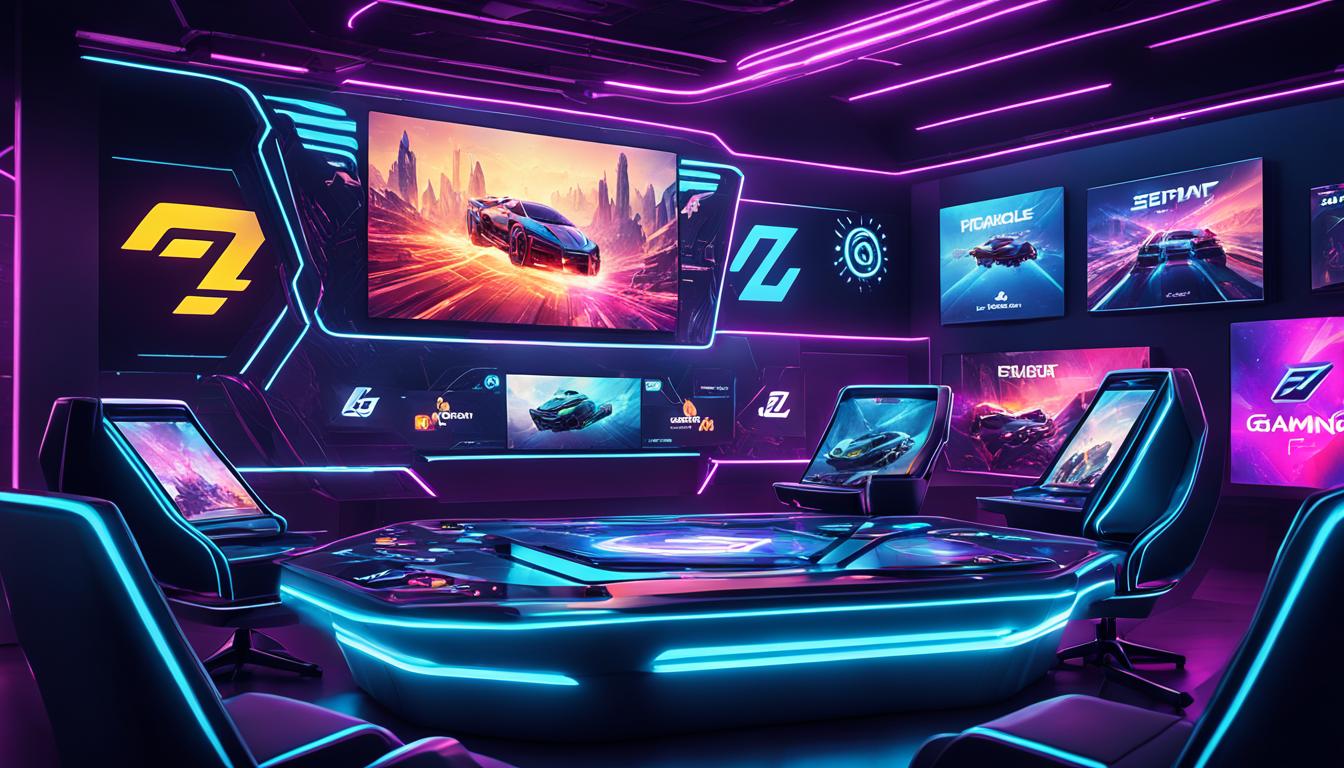
Case Study Analysis: Successful Luxury Brand and Video Game Collaborations
Analyzing successful case studies of luxury brand and video game collaborations can provide valuable insights for luxury brands looking to pursue partnerships in the gaming industry. Examining the strategies and outcomes of these collaborations can help brands understand the elements that contribute to successful brand synergy and identify potential opportunities for their own partnerships. Case studies such as the collaboration between Louis Vuitton and ‘League of Legends’ can showcase the potential impact and benefits of luxury brand and video game collaborations.
One notable case study that exemplifies the success of luxury brand collaborations in the gaming industry is the partnership between Louis Vuitton, a renowned luxury brand, and ‘League of Legends’, one of the world’s most popular video games.
“The collaboration between Louis Vuitton and ‘League of Legends’ brought together the worlds of high fashion and gaming, creating a unique and memorable experience for gamers and luxury consumers alike.”
The collaboration between Louis Vuitton and ‘League of Legends’ involved the creation of exclusive virtual items and a limited-edition luxury collection inspired by the game. The collaboration not only allowed gamers to dress their avatars in designer clothing but also provided an opportunity for luxury brand enthusiasts to own unique and collectible pieces from the collaboration.
The successful outcome of this collaboration can be attributed to several factors:
- Luxury Brand Appeal: Louis Vuitton’s reputation as a luxury brand with a rich heritage and premium products made it an ideal partner for ‘League of Legends’, which has a dedicated and passionate fanbase.
- Authenticity: The collaboration was authentic and resonated with both gamers and luxury brand enthusiasts. The integration of high fashion into the gaming world created a sense of excitement and exclusivity.
- Brand Integration: The collaboration went beyond virtual items and extended to real-world products, including a physical luxury collection. This allowed luxury brand consumers to engage with the collaboration on a tangible level.
- Marketing and Promotion: Both Louis Vuitton and ‘League of Legends’ leveraged their respective platforms to promote the collaboration. Social media campaigns, influencers, and in-game advertisements helped generate buzz and reach a wider audience.
Overall, the collaboration between Louis Vuitton and ‘League of Legends’ demonstrated the potential for successful luxury brand and video game collaborations. By analyzing case studies like this, luxury brands can gain insights into the strategies and approaches that contribute to brand synergy and create impactful partnerships in the gaming industry.
Top Gaming Market Trends Shaping the Future of Luxury Engagement
As the gaming industry continues to evolve, several market trends are emerging that have a significant impact on luxury engagement. These trends are shaping the future of luxury branding and providing new opportunities for luxury brands to connect with gamers on a deeper level.
The Rise of Esports and Its Marketing Potential
One of the key trends in the gaming industry is the exponential growth of esports. Esports refers to competitive video gaming, where professional gamers compete against each other in organized tournaments. This phenomenon has attracted a massive following and has even gained recognition as a legitimate sport.
The rise of esports presents a unique marketing potential for luxury brands. Esports events and tournaments attract millions of viewers, both online and in-person. Luxury brands can leverage this growing popularity by partnering with esports teams, sponsoring tournaments, or creating exclusive merchandise for esports fans. By aligning themselves with the esports community, luxury brands can tap into a highly engaged and passionate audience, gaining exposure and building brand loyalty.
Incorporating NFTs and Blockchain in Luxury Gaming Experiences
Another trend that is reshaping the gaming industry is the integration of non-fungible tokens (NFTs) and blockchain technology. NFTs are unique digital assets that can represent ownership of virtual items, artwork, or other digital content. Blockchain technology ensures the authenticity, traceability, and security of these assets.
Luxury brands can take advantage of NFTs and blockchain technology to create exclusive and collectible digital assets within gaming experiences. By offering limited-edition virtual items, virtual fashion collections, or in-game experiences, luxury brands can engage gamers in a new and innovative way. These digital assets hold value and status within the gaming community, making them highly sought after by gamers and collectors alike.
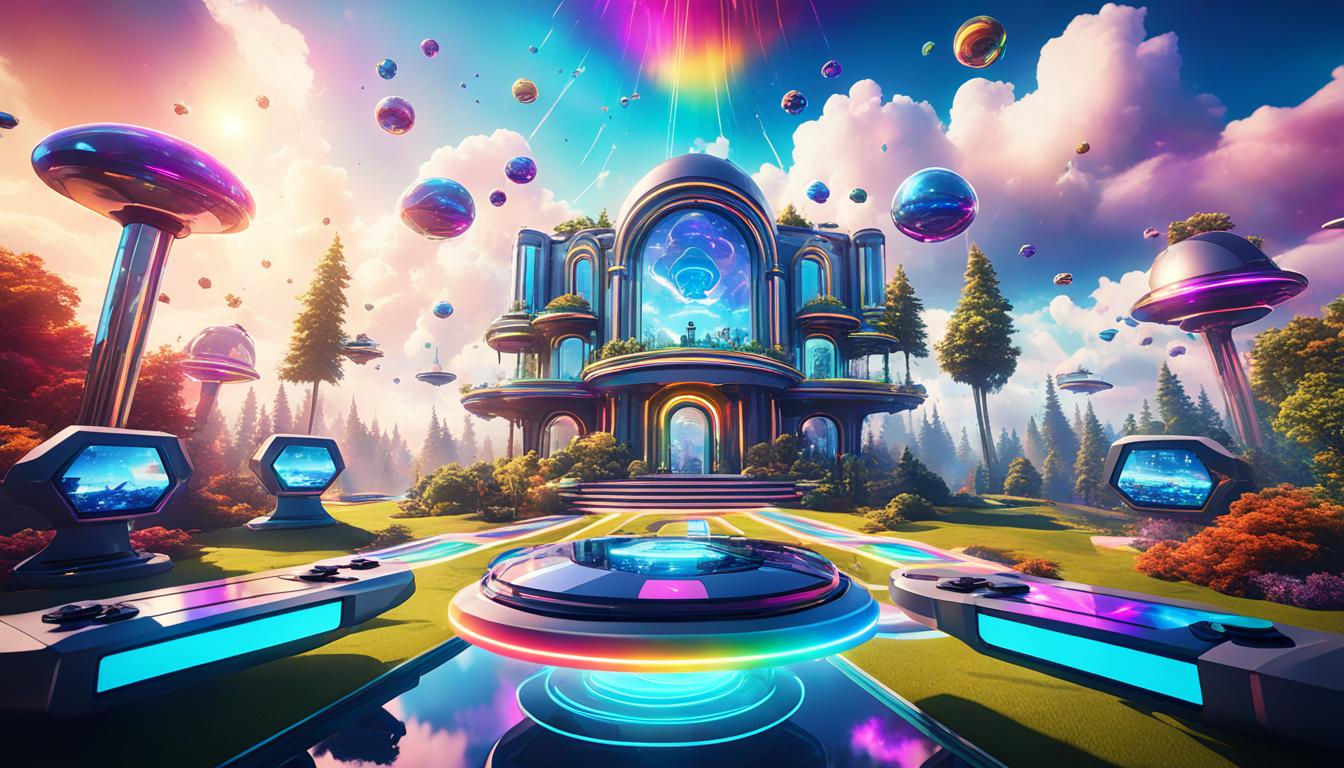
Staying ahead of these gaming market trends and incorporating them into luxury engagement strategies is essential for brands to remain competitive and relevant in the gaming industry. Embracing the rise of esports and exploring the potential of NFTs and blockchain technology allows luxury brands to connect with gamers on a deeper level and create unique experiences that resonate with this passionate audience.
Conclusion
In conclusion, the influence of social media on the luxury gaming industry cannot be overstated. Platforms like Instagram, Facebook, and Twitter have provided luxury brands with unprecedented opportunities to connect directly with gamers and promote their products. By leveraging social media, luxury brands can build brand awareness, share engaging content, and establish a strong presence within the gaming community.
Furthermore, the symbiotic relationship between luxury brands and the gaming industry has opened up exciting possibilities for marketing collaborations and partnerships. Integrating high fashion into pixelated worlds not only enhances the gaming experience but also allows luxury brands to showcase their products in innovative and creative ways. Collaborating with game developers and aligning marketing campaigns with gaming events and releases further amplifies the reach and impact of luxury brand promotions.
To stay relevant in the ever-evolving luxury gaming industry, it is important for luxury brands to understand and adapt to emerging trends. By embracing gaming industry trends and incorporating emerging technologies, such as virtual reality, augmented reality, and blockchain, luxury brands can captivate gamers and create unique experiences that resonate with their target audience.
Finally, engagement with Generation Z through gaming platforms is crucial for luxury brands looking to reach younger luxury buyers. Understanding the digital natives’ consumption patterns and preferences allows luxury brands to tailor their marketing strategies and create targeted campaigns that resonate with this demographic. By keeping a finger on the pulse of the gaming market and embracing future trends like the rise of esports and the integration of NFTs and blockchain technology, luxury brands can position themselves for success in the dynamic and flourishing luxury gaming industry.
